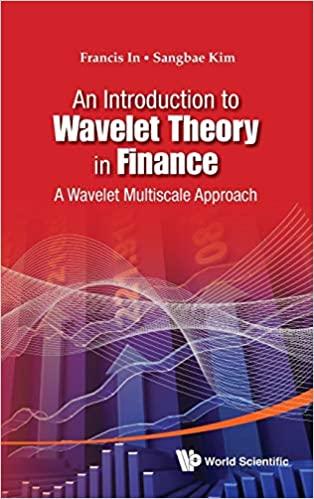Answered step by step
Verified Expert Solution
Question
1 Approved Answer
. Answer the entire problem, (A, B, C & D) please!!! There are various steps. This is my second time submitting the same question. (Click
.
Answer the entire problem, (A, B, C & D) please!!!
There are various steps. This is my second time submitting the same question.


 (Click on the following icon in order to copy its contents into a spreadsheet.) In such a situation, the project should always be accepted. a situation, the project should be accepted if the NPV is greater than 0 . In such a situation, it is not clear whether to accept or reject the project. lower. In such a situation, it is not clear whether to accept or reject the project. c. Notice that this project's greatest NPVs come at very high discount rates. Can you provide an intuitive explanation for that pattern? (Select the best answer below.) $519,857,467 ( 86.4% of the undiscounted outflow). C. There is no intuitive explanation when there are multiple IRRs. D. A and B provide an intuitive explanation. d. If Acme Oscillators' cost of capital is 8%, the MIRR of the investment is The company should (1) the investment because its MIRR is (2) %. (Round to four decimal places.) than the cost of capital. (Select from the drop-down menus.) 16. Problems with the IRR method Acme Oscillators is considering an investment project that has the following rather unusual cash flow pattern: 6. a. Calculate the project's NPV at each of the following discount rates: 0%,5%,10%,20%,30%,40%,50%. or reject this investment? c. Notice that this project's greatest NPVs come at very high discount rates. Can you provide an intuitive explanation for that pattern? d. If Acme Oscillators' cost of capital is 8%, should the company accept or reject this investment based on MIRR? a. Calculate the NPV at the following discount rates for this investment: 0%,5%,10%,20%,30%,40%,50%. The NPV at 0% is $ The NPV at 5% is $ The NPV at 10% is $ The NPV at 20% is \$ The NPV at 30% is $ The NPV at 40% is $ The NPV at 50% is $ (Round to the nearest dollar.) (Round to the nearest dollar.) (Round to the nearest dollar.) (Round to the nearest dollar.) (Round to the nearest dollar.) (Round to the nearest dollar.) (Round to the nearest dollar.) b. What do the calculations tell you about this project's IRR? (Select the best answer below.) A. The calculations tell you this project has no IRR. B. The calculations tell you this project's IRR is greater than 50%. C. The calculations tell you that this project's IRR is negative. D. The calculations tell you this project has more than one IRR
(Click on the following icon in order to copy its contents into a spreadsheet.) In such a situation, the project should always be accepted. a situation, the project should be accepted if the NPV is greater than 0 . In such a situation, it is not clear whether to accept or reject the project. lower. In such a situation, it is not clear whether to accept or reject the project. c. Notice that this project's greatest NPVs come at very high discount rates. Can you provide an intuitive explanation for that pattern? (Select the best answer below.) $519,857,467 ( 86.4% of the undiscounted outflow). C. There is no intuitive explanation when there are multiple IRRs. D. A and B provide an intuitive explanation. d. If Acme Oscillators' cost of capital is 8%, the MIRR of the investment is The company should (1) the investment because its MIRR is (2) %. (Round to four decimal places.) than the cost of capital. (Select from the drop-down menus.) 16. Problems with the IRR method Acme Oscillators is considering an investment project that has the following rather unusual cash flow pattern: 6. a. Calculate the project's NPV at each of the following discount rates: 0%,5%,10%,20%,30%,40%,50%. or reject this investment? c. Notice that this project's greatest NPVs come at very high discount rates. Can you provide an intuitive explanation for that pattern? d. If Acme Oscillators' cost of capital is 8%, should the company accept or reject this investment based on MIRR? a. Calculate the NPV at the following discount rates for this investment: 0%,5%,10%,20%,30%,40%,50%. The NPV at 0% is $ The NPV at 5% is $ The NPV at 10% is $ The NPV at 20% is \$ The NPV at 30% is $ The NPV at 40% is $ The NPV at 50% is $ (Round to the nearest dollar.) (Round to the nearest dollar.) (Round to the nearest dollar.) (Round to the nearest dollar.) (Round to the nearest dollar.) (Round to the nearest dollar.) (Round to the nearest dollar.) b. What do the calculations tell you about this project's IRR? (Select the best answer below.) A. The calculations tell you this project has no IRR. B. The calculations tell you this project's IRR is greater than 50%. C. The calculations tell you that this project's IRR is negative. D. The calculations tell you this project has more than one IRR Step by Step Solution
There are 3 Steps involved in it
Step: 1

Get Instant Access to Expert-Tailored Solutions
See step-by-step solutions with expert insights and AI powered tools for academic success
Step: 2

Step: 3

Ace Your Homework with AI
Get the answers you need in no time with our AI-driven, step-by-step assistance
Get Started


